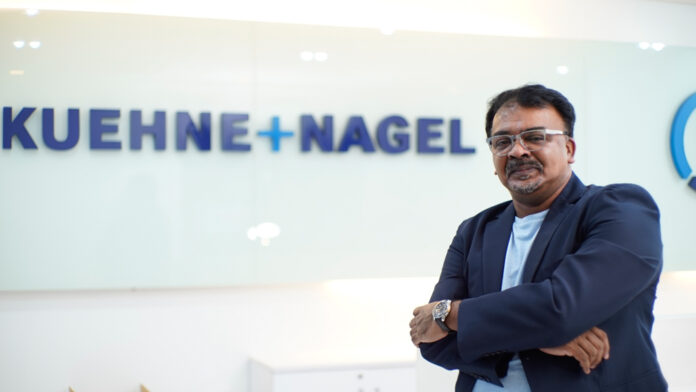
By Wilfred Demello, Managing Director, Kuehne+Nagel Philippines
Carbon neutrality or the idea of sustainability is no longer a luxury, but rather already a determinant on how supply chain should evolve. Achieving this in a market as huge and complex as Asia Pacific relies on a deep understanding of the industry.
The supply chain in the region is extremely complex, especially with the boom in outsourcing segments of the production line. With four to five companies supporting the production of one brand, knowing exactly how much CO2 is being produced by one brand is a tough ask. Is the brand only accountable to the waste produced in packing, raw material sourcing or delivery? This debate on accountability can also be seen in co-loading, shared warehousing, facility digitalization, and more.
We also need to note that competition is a cutthroat factor in the market, and a carbon-neutral production line is not necessarily cheap. Whether a company chooses to appoint environment-friendly suppliers or embarks on carbon offsetting, these additional costs are passed on to customers. Consider how impactful this is when a mere five-peso difference could see loyal customers switching camps in pre-pandemic times.
It is said that Asia is set to outpace the rest of the world in terms of economic recovery. Our e-commerce sector is predicted to account for 57% of global growth between 2020 and 2025, and a huge driver of that growth is the middle class. Hence, whilst we see a low average annual spend per customer, we also see more items being tossed around (more packaging, truck trips and waste). That leads to less space and flexibility to manage and control the CO2 footprint, what with the need for demand-driven production, more delivery points, and the cost benefits between immediate and scheduled shipping. This new ecosystem disrupts the traditional consumer market where manufacturers had better control over schedules and the assembly line.
But all these factors mean that there are a lot of opportunities to make a difference.
Kuehne+Nagel is constantly looking at ways to address these issues as part of our Net Zero Carbon program, which was established in 2019. This is why we have also signed up to the Science Based Targets initiative (SBTi) to reduce the CO2 footprint in our value chain. We are doing this by offering opportunities to switch modes of transport for a lower CO2 footprint, through our seaexplorer platform, and the option of selecting sea vessels and routes with a minimal CO2 footprint. We also offer alternative fuels as an option for customers who want to neutralize their carbon emissions.
In the Philippines, a good avenue for carbon neutrality is digitalization because the players are traditionally reliant on printing. We have embraced technology in our transactions through electronic documentations, digital signatures, secured cloud sharing of contracts, and even paperless hiring processes. We also measure and report the total amount of plastic we use in our warehouse and distribution services, and offset them through partnerships with sustainable organizations. On top of this, we continue to partner with organizations for tree-planting activities, plastic recycling and collection, as well as education/awareness efforts, among others.
A lot of organizations and private companies are as invested as us in this battle. And this is perhaps one positive thing brought by the current state of our environment: the problem can no longer be denied. In most Asian cities, people can see the effects of the previous apathetic market—and this has led to a sort of an awakening. People now are more conscious of how they are contributing to the situation.
Coupled with this renewed sense of urgency, this “aware consumer” will soon dictate the retail industry. Hence, sustainability will be a unique selling point for logistics players—already seen through eco-labelling. For some more advanced economies, consumers are even willing to spend more in exchange for these assurances, and the sense of environmental co-ownership through the brands they purchase.
And it is through this collective ownership that we, as a region, can achieve carbon neutrality. Brands need to activate their entire ecosystem. It need not be that each player ensures 100% neutrality; what’s important is that something is done at every step of the supply chain. Consumers need to continue being aware and drive the market demand in a way that would make carbon neutrality a necessity, not a luxury.
I am confident that in the next few years, Asia Pacific will make great strides towards carbon neutrality; not because we believe in it economically, but because we are emotionally invested in it. We all want a safer community for our children that is better than what we tolerate today.
Wilfred Demello is the Managing Director for Kuehne+Nagel Philippines, leading both Kuehne + Nagel, Inc. and Kuehne + Nagel Logistics Solutions Inc. Prior to this role, he was the Business Director based in Kuala Lumpur leading the Malaysia country organisation. In India, he held various positions in sales, key account and branch management. He was then appointed as General Manager for Aviation and eventually as Country Head for Air Logistics. Wilfred’s expertise lies in operational excellence, people and talent development as well as championing employee engagement.




